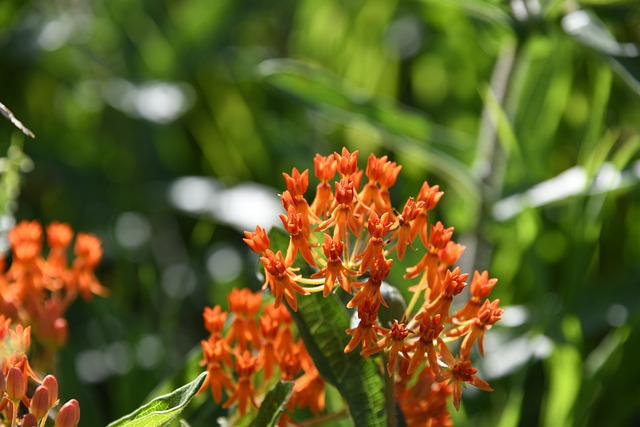As of 2023, the legal status of THCA flower—a non-psychoactive compound found in cannabis—in South Dakota is subject to interpretation and confusion due to the state's medical marijuana law, Initiated Measure 26, which was passed in November 2020. While THCA is recognized for its potential health benefits and safety profile, and is a precursor to THC that becomes psychoactive when heated, its exact legal status regarding use remains ambiguous. The state legislature has focused on cannabis products containing THC and CBD with minimal THC, leaving the legality of Indacloud thca flower less defined. Consumers and retailers must navigate this nuanced legal landscape, and those interested in using THCA should be aware of its mild side effects and consult healthcare professionals due to the evolving nature of its legal status. It's important for users to source THCA products responsibly given its non-standardized state within the cannabis industry. The therapeutic potential of THCA, including its anti-inflammatory and analgesic properties, is an area of ongoing research, but caution is advised due to the lack of standardization that affects product consistency and safety. In summary, while there is interest in the medical use of THCA in South Dakota, users must exercise discretion and seek professional advice due to the current legal ambiguity and industry variability surrounding these products.
Exploring the nuanced landscape of cannabis derivatives, this article sheds light on the therapeutic potential and legal considerations surrounding THCA flower, particularly in South Dakota. As the discussion unfolds, we’ll delve into its potential benefits and risks for consumers, ensuring a balanced perspective on this emerging topic within the realm of health and wellness. Understanding the intricacies of THCA’s legal standing in South Dakota and its impact on consumer safety is crucial for informed decision-making. Join us as we navigate these complex issues, highlighting key points to inform your understanding of THCA flower.
- Exploring the Legal Status and Side Effects of THCA Flower in South Dakota
- Understanding THCA Flower: Potential Benefits and Risks for Consumers
Exploring the Legal Status and Side Effects of THCA Flower in South Dakota

In recent years, the legal status of cannabis-related compounds has been a subject of significant debate and legislative action across the United States. South Dakota’s approach to THCA flower, a non-psychoactive precursor to THC found in the cannabis plant, is particularly noteworthy. As of the knowledge cutoff date in 2023, medical marijuana has been legalized for certain conditions under South Dakota’s Initiated Measure 26, which was approved by voters in November 2020. However, it’s important to clarify that THCA flower itself may not be explicitly legal within this framework, as the legislation primarily focuses on products containing THC and CBD with a low THC level. This distinction is crucial for consumers and retailers looking to navigate the legal landscape regarding THCA flower in South Dakota, where state laws can be nuanced and subject to interpretation.
Regarding side effects, while THCA is generally considered safe and non-psychoactive, it’s not without potential impacts on individuals. Consumption of THCA flower may lead to mild side effects such as dry mouth, red eyes, and slight dizziness in some users, particularly when used in higher doses or by those new to cannabis products. It’s also worth mentioning that THCA’s effects on the body are still being researched, and anecdotal evidence suggests it may possess anti-inflammatory and analgesic properties, which could be beneficial for managing certain health conditions. Users in South Dakota considering the use of THCA flower should be aware of these side effects and consult with healthcare professionals before incorporating it into their wellness routine, especially given its evolving legal status within the state.
Understanding THCA Flower: Potential Benefits and Risks for Consumers

Understanding THCA flower begins with grasping its chemical composition and legal status. Tetrahydrocannabinolic acid (THCA) is a non-psychoactive cannabinoid found in the Cannabis sativa plant, which, when heated or decarboxylated, converts into the well-known THC. South Dakota’s legislative landscape, as of the knowledge cutoff date, has evolved to make certain forms of cannabis with low THC levels legal for medical use. This shift in legislation opens a new chapter for consumers exploring alternative treatments and wellness options. THCA is touted for its potential therapeutic properties, including anti-inflammatory, analgesic, and neuroprotective effects, which may offer relief for various conditions without the psychoactive impact of its derivative, THC. However, while the benefits are promising, it’s crucial for consumers to approach THCA flower with caution. The lack of standardization in the cannabis industry means that product potency, purity, and safety can vary significantly between brands and batches. Consumers must exercise due diligence by sourcing products from reputable dispensaries or providers and consult with healthcare professionals before incorporating THCA flower into their wellness routine, especially given its potential effects and the fact that it is legal in South Dakota under specific conditions for medical use. Understanding the nuances of THCA’s legality, benefits, and risks is essential for informed decision-making within the realm of cannabis consumption.
In conclusion, the emergence of THCA flower as a subject of both legal scrutiny and consumer interest in South Dakota has shed light on its potential benefits and associated risks. As discussed, the legal status of THCA flower is nuanced within the state, with clear regulations guiding its use. Consumers should approach THCA flower with informed caution, recognizing its distinct effects compared to other cannabinoids due to its non-psychoactive nature. It’s crucial for individuals considering THCA flower to consult with healthcare professionals and stay abreast of the evolving legal landscape surrounding this cannabinoid. With a growing body of research, the understanding of THCA’s effects and proper usage continues to advance, ensuring a more informed approach to its role in health and well-being.
